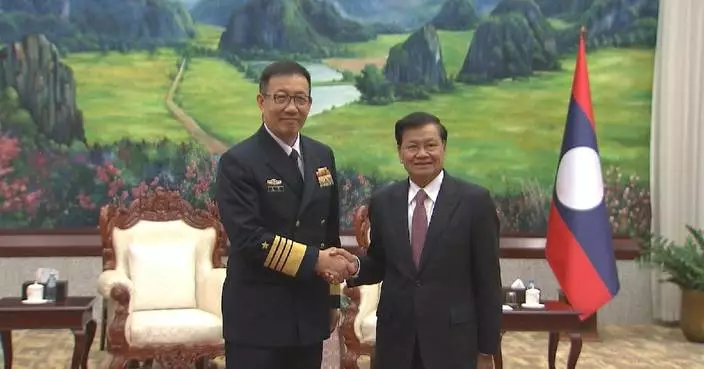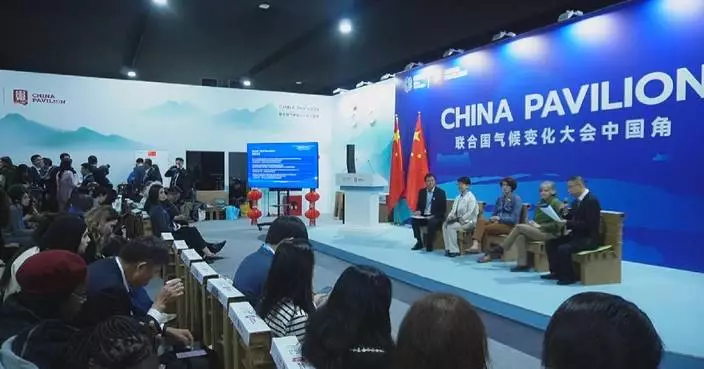China's further tax reduction of larger house sales will reduce costs for buyers, ease financial pressure on companies, and further stabilize market expectations, said housing experts.
China rolled out tax policies on Nov 13 to support the steady and healthy development of the real estate market by increasing incentives in terms of deed tax to support people's essential housing needs and needs for improving their housing conditions.
The new policies, effective from Dec 1, 2024, were jointly introduced by the Ministry of Finance, the State Tax Administration, and the Ministry of Housing and Urban-Rural Development.
The southern Chinese metropolis of Guangzhou, Guangdong Province, announced on Friday that it will reduce taxes on transactions involving larger housing units, aligning with similar measures adopted earlier by Beijing, Shanghai and Shenzhen.
This marks that from Dec 1, all four first-tier cities in China will scrap the distinction between ordinary and non-ordinary housing, which generally refers to a house with large residential area or used for commercial purposes.
"The cancellation of the standards for ordinary housing and non-ordinary housing and tax incentives are essentially to encourage more residents to improve their living conditions, especially for families who already have houses, by reducing their housing-changing costs and prompting them to consider purchasing more comfortable and higher-quality housing," said Yu Xiaofen, head of the Chinese Academy of Housing and Real Estate under Zhejiang University of Technology.
The implementation of the new tax policy will benefit improvement demand the most. For the four first-tier cities, the deed tax for the second house was levied at 3 percent in the past, and now it was uniformly adjusted to 1 percent for 140 square meters and below, and 2 percent for more than 140 square meters.
The new tax policy also stated that the lower limit of the land appreciation tax prepayment rate in various regions will be uniformly reduced by 0.5 percentage points, which will further ease the financial pressure on real estate companies, according to experts.
As a type of tax with a relatively high tax amount for real estate companies, a uniform reduction in the lower limit of the land appreciation tax prepayment rate will reduce the expenditures of real estate companies, help alleviate their financial difficulties, and inject confidence into their future development, according to experts.

China's new tax policies on larger houses to better stabilize market expectations: expert
Application for China's annual tour guide license exam, which began on Saturday, is posting a significant growing momentum in various regions.
The exam consists a written test and an interview. The written part was held on Saturday, and interviews will be concluded before Dec 22, covering policies and regulations, basic knowledge, and service abilities.
For example, the number of candidates who registered for the exam in northwest China's Shaanxi Province this year reached 15,440, an increase of 62.3 percent over last year. A total of 5,363 candidates registered in the northeast China's Jilin Province examination area, an increase of 71.34 percent year on year.
In the past two years, the tourism industry has been gaining momentum, and the cultural tourism industry across cities and tour guide markets have been complimenting each other, said tourism experts.
"This year, the number of people applying for the national tour guide qualification certificate is about 310,000, far exceeding the 200,000 last year. After we have the tour guide qualification certificate, we have the right to apply for a tour guide certificate and then engage in tour guide-related business. Among the 650,000 certified tour guides, 93 percent speak Chinese, 6 percent speak English, and the rest speak minority languages," said Wang Xiaoyu, researcher at the Tourism Research Center under the Chinese Academy of Social Sciences.
China has fully entered the era of mass tourism, and as the tourism market matures, consumer demand for tour guides is also constantly changing and upgrading, which is mainly reflected in three aspects, according to Wang.
"There are mainly three changes. The first is that our domestic tourism market is actually transforming from sightseeing to theme leisure vacation. At the same time, the tourism service industry is also constantly being customized in small groups, which puts forward new requirements for tour guides, such as customized services and personalized services. Second, the supply and demand of the entire market is actually reversing. Now we need a large number of high-quality tour guide teams to serve the market and serve consumer groups. The third is our online development. The digitalization of the entire cultural and tourism industry, especially the digitalization of tour guide services, is becoming more and more obvious. So it's important to make good use of Internet tools and online new media tools and do a good job in our online tourism promotion and online cultural and tourism services," said Wang.

Application for national tour guide qualification examination posts growth momentum










